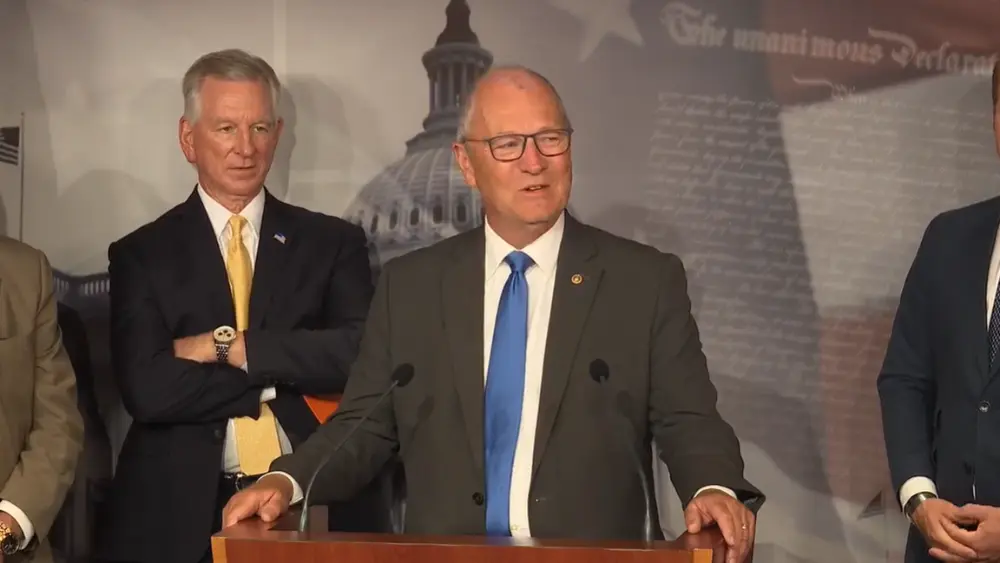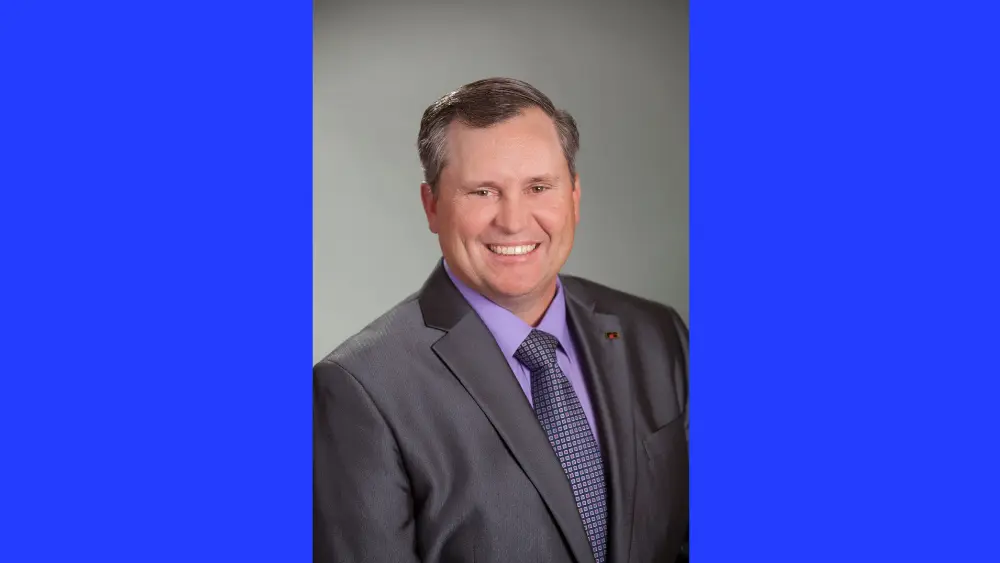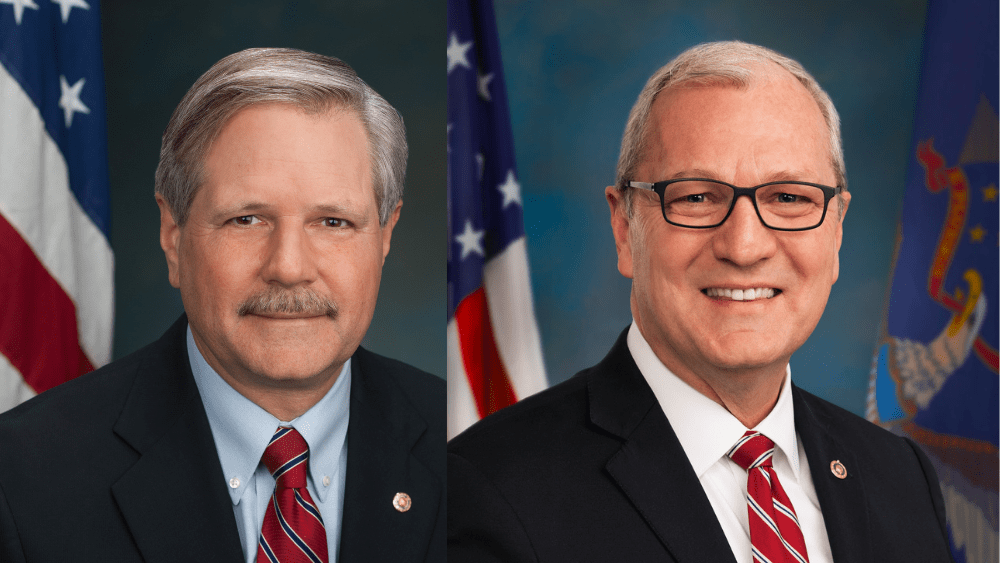Steve Hallstrom
Special to the Farmer
Moments after hanging up with President Donald Trump, U.S. Senator Kevin Cramer (R-ND) joined Scott Hennen on AM 1090 KTGO Radio for an exclusive interview, detailing the president’s “Big Beautiful Bill,” and the recent U.S. military strike on Iran.
The interview offered a front-row seat to Washington’s high-stakes debate, and highlighting North Dakota’s influence as Trump’s July 4 th deadline for the president’s signature legislation looms.
Cramer, a loyal Trump ally, revealed the president’s deep involvement in the Big Beautiful Bill, a sprawling package aimed at slashing taxes, funding immigration enforcement, and cutting federal spending.
The bill has divided Senate Republicans, with some wary of proposed benefit cuts, while others push for aggressive fiscal restraint.
The bill, at press time, had cleared a procedural vote in the Senate, but not full passage. If approval comes, it would then need to pass a majority vote in the House before it would head to Trump’s desk.
The legislation would extend the 2017 Tax Cuts and Jobs Act that Trump signed into law in his first term.
It would also eliminate a large swath of taxes on tips and overtime pay. Democrats have railed against the bill, calling it a tax cut for the wealthy, at the expense of federal programs that serve working-class people.
Trump’s goal is to sign the legislation by Independence Day, a symbolic deadline to coincide with the country’s annual celebration.
“I called [President Trump] about a couple of things related to the big, beautiful bill, and how some of the language relates to green new scam, tax credits, and a suggestion I had for fixing it and sort of escalating the demise of wind and solar gifts in exchange for helping reliable electricity,” Cramer said.
“I think he appreciated my commitment to his, and our, shared views of inefficient electricity that’s been subsidized for 35 years. It is hurting our grid, quite honestly. Regardless of what the utilities will tell you, it is hurting our grid. So, we had a really good conversation about that.”
A champion of North Dakota’s oil industry, Cramer also discussed the Sanctioning Russia Act of 2025, which he co-sponsored with Senators Lindsey Graham (R-SC) and Richard Blumenthal (D-CT). The bill imposes severe penalties on Russia and 500% tariffs on nations like China and India for buying Russian fossil fuels. Reuters News Service reports that the goal is to stifle Moscow’s war funding.
“I talked a little bit about the Russian sanctions bill and just wanted to make sure he was comfortable with it and that we can move forward with passing it, probably right after the fourth of July,” Cramer noted.
“And it was very short, I just needed to talk to him about a couple things, so I called a few of the other people at the White House and left voicemails, and then called the President and he answered on the first ring as is always the case. It’s a really remarkable thing.”
The interview pivoted to Operation Midnight Hammer, the U.S. military’s June 2025 strikes on Iran’s nuclear sites at Fordow, Natanz, and Isfahan.
The operation, ending in a Trump-brokered ceasefire, targeted Iran’s uranium enrichment to prevent weaponization. The Washington Post reports that critics like Senators Tim Kaine (D-VA) and Chris Murphy (D-CT) have questioned claims that Iran’s nuclear program was “obliterated,” citing unverified damage reports. Cramer dismissed the skepticism as partisan clamor.
“It totally is [Trump derangement syndrome], but the fact of the matter is, it was brilliantly executed by our military. It was brilliantly called by the President. It was geopolitical genius. It was domestic political genius. It is indisputably one of the most important bombings in the history of American power. And it was short lived, didn’t attack individuals, but it created peace, and Donald Trump can maintain his reputation as the person who ends wars, he doesn’t start them.”
On the ceasefire’s prospects, now having held for several days, Cramer was cautiously optimistic.
“I do [think the ceasefire holds]. I’m kind of amazed by it. Because quite honestly, given what Israel alone is capable of doing, I don’t think Iran’s in any position to start firing. Really amazing what’s happened in a week. Another example, where you just can’t
even believe it.”
Cramer did express concern over Trump’s initial willingness to ease Iran sanctions, which could allow Tehran to sell oil to China, potentially hurting North Dakota’s oil
sector.
“Yeah, that was concerning to me…Even though he made the right call and everybody had that more than adequate warning. I think he just wanted to try to give a little something to Iran to say, hey, you know, do what you need to do. But I do think that was a geopolitical error, frankly, because it not only does it help Iran, it helps China, and that’s almost worse for me.”
The Big Beautiful Bill’s Medicaid cuts have sparked fierce rhetoric on Capitol Hill, and the disagreements are not just between parties.
Some GOP Senators, like Missouri’s Josh Hawley, Alaska’s Susan Murkowski, and Maine’s Susan Collins have said the cuts go too far.
Other republicans say the slashes either cut unnecessary benefits, are directed toward people who should not be receiving benefits, or affect people that can afford to pay them.
The bill would install work requirements for able-bodied individuals, increase eligibility monitoring of those receiving benefits, cut medical care for transgender individuals, prohibit states from using their own funds to provide Medicaid coverage to undocumented immigrants, raise copays by $35 for Medicaid recipients with incomes above the federal poverty level (approximately $15,500 for individuals) and freeze existing provider taxes that are levied on hospitals and other providers to fund Medicaid.
Bloomberg reports that the reduction in provider taxes would move them from 6% to 3.5% by 2031 in Medicaid expansion states, saving billions but risking rural hospital funding, a concern for moderates like Collins.
The Senate parliamentarian axed provisions like the Hearing Protection Act, the SHORT Act, and a ban on Medicaid for undocumented immigrants, citing the Byrd Rule’s budget-only requirement. The Byrd Rule, named after West Virginia Senator Robert Byrd who served for 51 years, is a Senate rule that prevents extraneous provisions from being included in a reconciliation bill.
Cramer said he is critical of the Parliamentarian’s decision. “That’s one of the things that just makes no sense. The Byrd rule is what allows you to get something passed with 50 votes. And the one big, beautiful bill and the whole Trump agenda from the election is only going to happen if you can pass it with 50 votes.”
Cramer rejected the idea that Vice President J.D. Vance could override the parliamentarian, warning against undermining Senate rules.
“No, we’re sure JD Vance cannot override it,” he said. “And nor would we want to. The integrity of the Senate is really what’s at stake here.
The Senate requires 60 votes, and these very special circumstances, a very narrow focus. We can do things with 50 votes plus the Vice President. You can override the parliamentarian if you choose to do that, but it takes a two-thirds vote, which obviously we wouldn’t have.”
Highlighting North Dakota’s influence, Cramer pointed to the Senate’s design. With a 53-47 Republican margin in the U.S. Senate, every vote counts, and North Dakota has no fewer votes than any other state.
“It’s a great point, which is exactly why there are two senators from North Dakota.”





